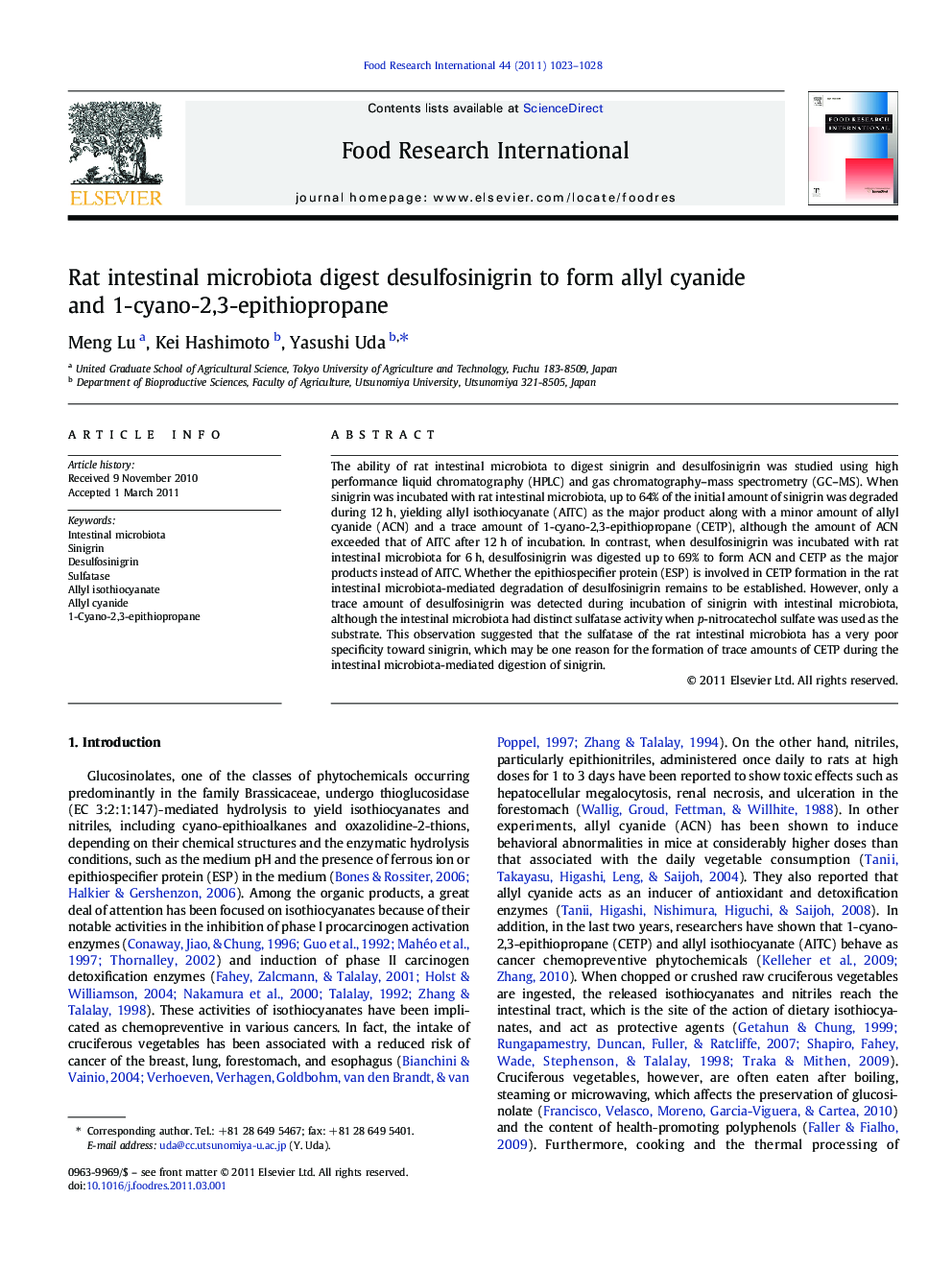| کد مقاله | کد نشریه | سال انتشار | مقاله انگلیسی | نسخه تمام متن |
|---|---|---|---|---|
| 4561862 | 1330693 | 2011 | 6 صفحه PDF | دانلود رایگان |

The ability of rat intestinal microbiota to digest sinigrin and desulfosinigrin was studied using high performance liquid chromatography (HPLC) and gas chromatography–mass spectrometry (GC–MS). When sinigrin was incubated with rat intestinal microbiota, up to 64% of the initial amount of sinigrin was degraded during 12 h, yielding allyl isothiocyanate (AITC) as the major product along with a minor amount of allyl cyanide (ACN) and a trace amount of 1-cyano-2,3-epithiopropane (CETP), although the amount of ACN exceeded that of AITC after 12 h of incubation. In contrast, when desulfosinigrin was incubated with rat intestinal microbiota for 6 h, desulfosinigrin was digested up to 69% to form ACN and CETP as the major products instead of AITC. Whether the epithiospecifier protein (ESP) is involved in CETP formation in the rat intestinal microbiota-mediated degradation of desulfosinigrin remains to be established. However, only a trace amount of desulfosinigrin was detected during incubation of sinigrin with intestinal microbiota, although the intestinal microbiota had distinct sulfatase activity when p-nitrocatechol sulfate was used as the substrate. This observation suggested that the sulfatase of the rat intestinal microbiota has a very poor specificity toward sinigrin, which may be one reason for the formation of trace amounts of CETP during the intestinal microbiota-mediated digestion of sinigrin.
Journal: Food Research International - Volume 44, Issue 4, May 2011, Pages 1023–1028